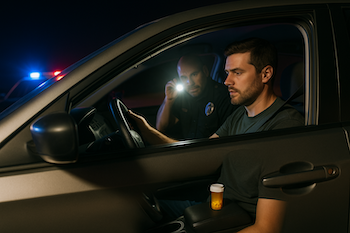 Driving under the influence of prescription medications in Illinois can lead to DUI charges if the drugs impair your ability to operate a vehicle safely, even if taken as prescribed. As a Will County DUI lawyer with over 20 years of experience, including as a former prosecutor, I've defended many clients in Joliet who faced these charges due to medications like opioids, benzodiazepines, or antidepressants. Under 625 ILCS 5/11-501, a DUI is defined as impairment from any substance that affects coordination or judgment, with no specific BAC-like threshold for drugs—officers rely on field sobriety tests, blood draws, or observable signs. In 2025, with no major statutory changes but increased focus on prescription drug abuse, prosecutors in Will County scrutinize these cases, especially if mixed with alcohol or cannabis. Defenses highlighting proper usage, medical necessity, or test inaccuracies can reduce charges or secure dismissals, preventing penalties like jail time, fines, and license revocation that disrupt lives and careers.
Driving under the influence of prescription medications in Illinois can lead to DUI charges if the drugs impair your ability to operate a vehicle safely, even if taken as prescribed. As a Will County DUI lawyer with over 20 years of experience, including as a former prosecutor, I've defended many clients in Joliet who faced these charges due to medications like opioids, benzodiazepines, or antidepressants. Under 625 ILCS 5/11-501, a DUI is defined as impairment from any substance that affects coordination or judgment, with no specific BAC-like threshold for drugs—officers rely on field sobriety tests, blood draws, or observable signs. In 2025, with no major statutory changes but increased focus on prescription drug abuse, prosecutors in Will County scrutinize these cases, especially if mixed with alcohol or cannabis. Defenses highlighting proper usage, medical necessity, or test inaccuracies can reduce charges or secure dismissals, preventing penalties like jail time, fines, and license revocation that disrupt lives and careers.
How Prescription Medications Lead to DUI Charges
Prescription drugs can cause side effects like drowsiness or slowed reactions, mimicking alcohol impairment and leading to erratic driving noticed during stops. Common meds include Vicodin for pain, Xanax for anxiety, or Ambien for sleep, and even legal doses can result in arrests if impairment is alleged. In Will County, cases often involve blood or urine tests detecting metabolites, which linger longer than effects, complicating defenses. For 2025, medical marijuana prescriptions add layers, as THC levels over 5 ng/ml indicate impairment regardless of prescription. Officers must have probable cause for tests, but refusals trigger 12-month suspensions under implied consent laws.
Penalties for Prescription Medication DUIs in 2025
Penalties align with standard DUIs but escalate with aggravating factors:
- First Offense (Class A Misdemeanor): Up to 1 year jail, $2,500 fine, 1-year revocation; mandatory evaluation/treatment.
- Repeat or Aggravated (Felony): 1-7 years prison, $25,000 fine, 2-5+ year revocation if injury or high impairment.
- Additional impacts: BAIID mandate, insurance surges (up to 200%), and criminal records affecting professional licenses (e.g., healthcare or driving jobs). Reinstatement requires SOS hearings with SR-22 insurance for 3 years.
Effective Defenses for Prescription Medication DUIs
Defenses include proving no foreseeable impairment (e.g., label warnings not followed), challenging test validity (metabolites vs. active drugs), or suppressing evidence from illegal stops. Expert witnesses on pharmacology can testify to non-impairment. For 2025, argue involuntary intoxication if side effects were unexpected, leading to reductions to reckless driving or court supervision, avoiding convictions.
Why Hire a Will County DUI Lawyer for Prescription Medication Cases?
Prescription DUIs require medical and legal expertise to build strong defenses. At Will County DUI Lawyers, led by Jack L. Zaremba, we specialize in drug impairment challenges, evidence suppression, and license reinstatement to protect your rights.
Contact us today for a free consultation at our contact page or call (815) 740-4025. Defend your prescription use effectively.

